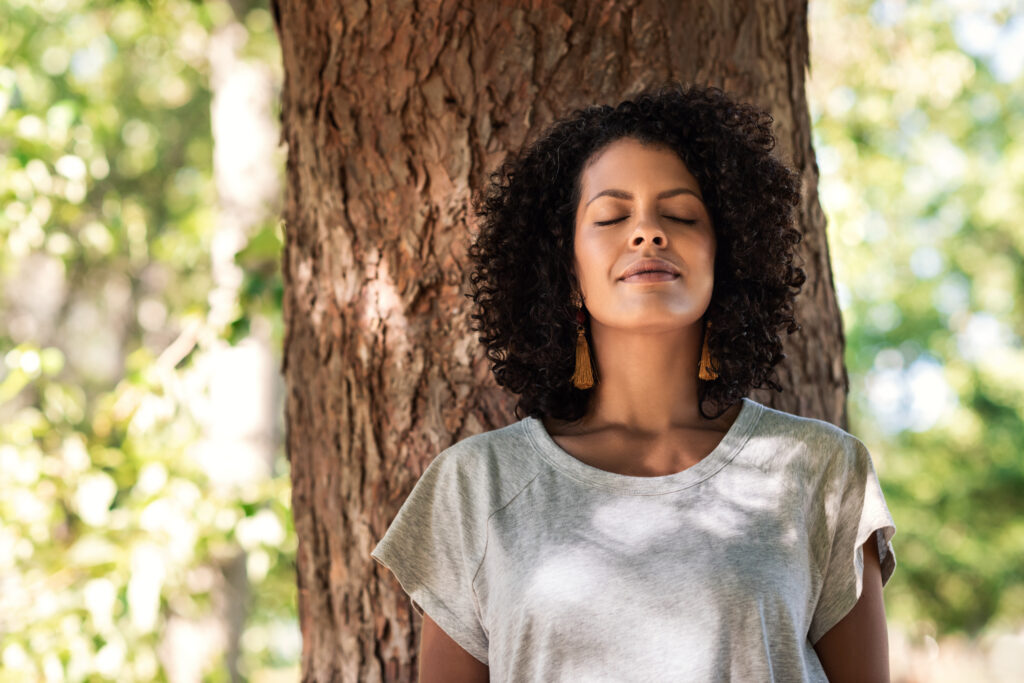Ways To Cope With Election Anxiety and Stress
- Category: Anxiety
- October 20, 2020
This year October ushers in a tradition; we vote for the President of the United States. Elections bring up intense feelings that can disrupt normal functioning in activities. We can’t help but feel strongly about our political views. Elections and politics are a source of stress, anxiety, and depression. We worry about the effects a politician could have on our country and our lives. Policies enacted by our elected leaders can have short and long-term impacts on our welfare.
The upcoming election is no exception to how people feel. The American Psychological Association (APA) conducted a study in 2019. The study focused on several topics, including stress and the elections. Overall, the study showed “56 percent of U.S. adults cite the 2020 presidential election as a stressor more than one year before the election.” The upcoming election isn’t the only source of stress this year. This year Americans are experiencing COVID-19, shootings, riots, and a contentious bid for the Presidency. When these factors are combined, a belief that Americans are feeling over-stressed would be fair. As COVID-19 continues to alter our daily lives, we find ourselves trying to find meaningful ways to keep in contact with others. Part of keeping in touch is to stay informed. However, staying informed causes its own form of stress. We are bombarded with conflicting information regarding COVID-19, the presidential candidates, and social movements; we can become overwhelmed.
People want to stay informed about politics, the economy, health, and other information. The realization of the importance of a balance between being aware of the world, national, or local news and the need to filter out negative information is integral to their mental health. Taking care of emotional, physical, and spiritual health is essential in maintaining a positive thought pattern. Stress, fear, and anxiety impact the body, spirit, and mind. The psychological effects of prolonged fear, anxiety, or stress are numerous. A few of the effects are:
- Inability to form long-term memories
- A decreased ability to regulate fear due to damage to the brain
- Poor concentration
- Insomnia
Fear, Anxiety, and Stress
Fear, anxiety, and stress are used interchangeably, but there is a
difference between the three.
- Fear is an emotion stemming from the belief a person, creature, object, or an unknown element can pose as a danger or threat.
- Anxiety is an excessive sense of unease or apprehension often combined with panic attacks or compulsive behavior.
- Stress is an emotional or mental state coming from unfriendly or tense events or circumstances.
Increased stress and anxiety can lead to compulsive behavior, substance or alcohol use, shifting mood episodes, or inability to focus. Removing all triggers that cause pressure is daunting and impossible. Decrease your exposure to all forms of the media. Set a schedule that allows for news consumption, but doesn’t include a vast amount of time. Another option is to choose reliable sources of news that don’t provoke stress, fear, or anxiety. A caution though, even sources of news that don’t create feelings of stress, fear, or anxiety should be limited to preserve a sense of emotional well-being. There are ways you can decrease your exposure to outside influences that are origins of stress.
What To Avoid
Avoiding all sources of media is impossible unless you remove yourself from all contact with people. Unfortunately, our work and personal responsibilities won’t allow us to hide out from the world. Avoiding stress, fear, and anxiety can include:
Limiting Your News Sources
Watching or reading too many sources of news can increase anxiety. The endless search for more information and cross-checking news reports can lead to frustration. Social media posts add stress to an already overabundance of information. Weed out the news sources that bring you more stress. Rely on a few sources for your information. However, make sure you have a balanced perspective and don’t just listen to data from a biased source.
Limiting Alcohol or Substance Use
Increased levels of stress are catalysts for anxiety. Frequently, people seek solace in alcohol or substances. Alcohol or substances are not a way to fix your feeling of anxiety or stress. The urge to drink or use substances is a negative response to fear, stress, or anxiety. In addition to creating a harmful habit feelings of guilt, shame, low self-esteem, or self-harm can occur. Instead, pursue healthy coping techniques to alleviate stress and anxiety.
Activities to Relieve Stress
- Meditation requires letting go of negative thoughts and feelings.
- Yoga focuses on the mind-body connection.
- Exercise, such as running, biking, weight-lifting, or any form of physical activity provides a healthy way to release stress, fear, or anxiety.
- Cooking brings attention to the relationship between proper nutrition, creative thinking, and the feeling of accomplishment once the food is prepared.
- Exposure to nature can reset your mood. Nature boosts our immune system, improves mood, reduces stress, increases the ability to sleep or focus. Spending time in nature heals our body, mind, and spirit.
- Volunteer for a local charity
- Spend time with the elderly or disabled
- Participate or encourage random acts of kindness
- Read
- Explore new activities
- Refocus your attention to finding the beauty in things
- Plant a garden
- Journal
- Paint, draw or learn an art medium.
Whatever method you choose to aid you in avoiding or decreasing feelings of fear, anxiety, or stress dedicate at least three to four days a week to the activity. Prolonged exposure, repetition, and enjoyment of activity result in a habit. Positive habits will increase your feelings of joy, contentment, peace, or connection to something other than the source of your stress, fear, or anxiety.
The upcoming election is stressful for many people. We worry about how our lives will be affected in the short and long-term. Questions about healthcare access, taxes, and social issues continue to keep us preoccupied. We search for answers by watching, reading, or listening to the news. Arguments and posts on social media can bring up feelings of anxiety, fear, and stress. We can become consumed by people’s opinions and reactions. There is an increased fear of voicing our thoughts or asking questions. Stress and anxiety can paralyze us and decrease our enjoyment of life. By limiting news sources, finding new activities, volunteering, or exploring healthy choices, we can control how we react to the election’s stress. Seeking help by beginning therapy or becoming involved in group therapy sessions is; also an option. If you feel you are avoiding your emotions through alcohol or substance use, make an appointment with a therapist. Headlight is available 24/7 to answer questions or assist you in making an appointment. Call us at 866-932-1767.



